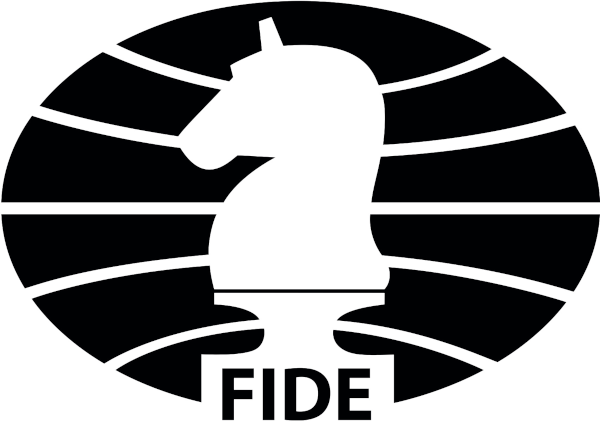The Girls Club “Chess for Protection” was launched by FIDE and UNHCR in 2021 as part of the Chess for Refugees program in the northwestern region of Kenya. Kenya is one of the largest refugee-hosting countries in Africa and the world, with over 500,000 refugees. More than 40% of these refugees reside in the Kakuma refugee camp and the majority of the population in Kakuma are children and youth.
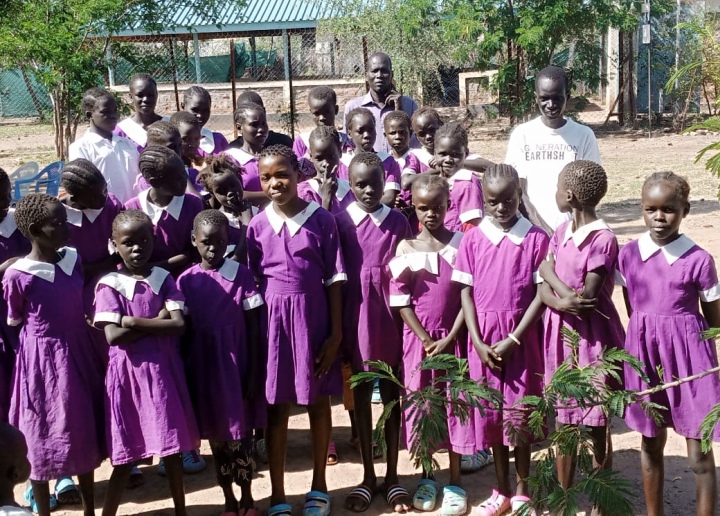
The goal of this initiative? To help young refugee girls learn the game of chess, acquire important life skills, improve their mental well-being, and give them the belief that great things are possible in life; all in a safe environment.
The very first classes at the beginning of the project were held at Angelina Jolie Primary School in Kakuma, with 40 students in attendance.
Three years in, the project now operates in three girls’ boarding schools in the region: Angelina Jolie Primary School, Morneau Shepell Secondary School, and Bhar-El-Naam Primary School. Over 250 refugee girls attend chess classes each year.
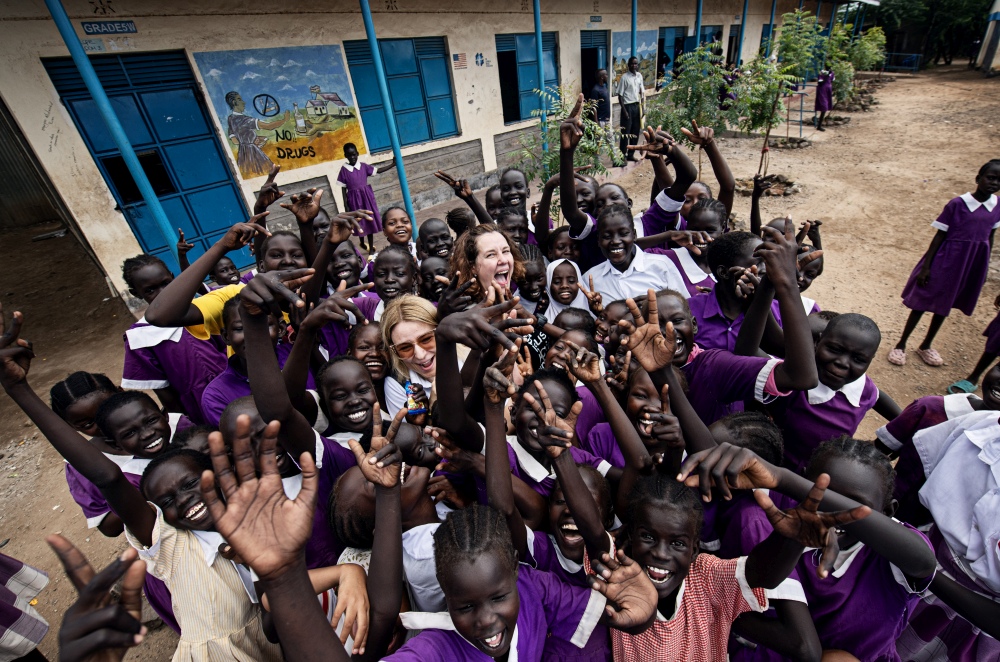
“This project is very special to me personally. I truly believe in the FIDE motto “Gens una sumus” and the motto of Judit Polgar’s Global Chess Festival “Chess Connects Us”, I experienced it in my life many times and I have seen how chess and the chess community can transform people’s lives; how it can uplift in seemingly hopeless situations, how it can open minds and give confidence. I know this project will help us witness it once again in Kakuma.” – shared Anastasia Sorokina, leader of this project and Chairperson of the FIDE Commission for Women’s Chess.
EMPOWERMENT THROUGH EDUCATION AND LEADERSHIP
The chess training combines online lessons with experienced coaches, training with a local tutor, and workshops featuring inspiring guests as well as Girls Book Club. The online trainers are WGM Anastasiya Karlovich (UKR) and IM Salome Melia (GEO)—both exceptional educators and accomplished chess players.
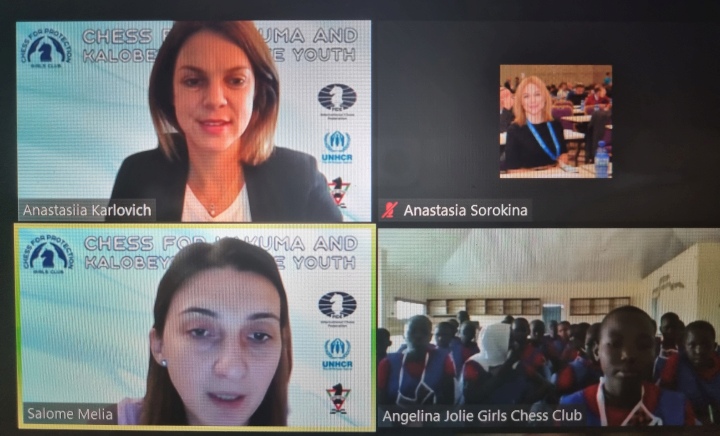
The Girls Chess Club aims to give the girls in Kakuma Camp new life skills and confidence, and these coaches are excellent leaders to achieve that goal. Anastasiya Karlovich is a Woman Grandmaster who has also served as a Press Officer at multiple World Championships and was awarded FIDE’s “Best Chess Photographer of the Century.” Salome Melia, an International Master and Woman Grandmaster, is a top female player who has won medals at European Championships and a World Championship title with the Georgian team in 2015.
Both coaches bring not only their chess expertise but also their personal experiences to inspire the girls to dream big and pursue their dreams bravely.

Book Club
The “Girls Book Club”, a part of a chess project for girls from the Kakuma refugee camp, is an opportunity to fall in love with books, find inspiration in them and, let’s be honest, gain an escape tool. An escape from the completely non-fairy-tale reality in which children live in Kenya.
The club is ran by Natalia Ryzhenko and Anastasiia Karlovich who present books, read and invite the girls to conversation. During the discussion, students watch short videos and cartoons to better understand the material, since the lessons are online.
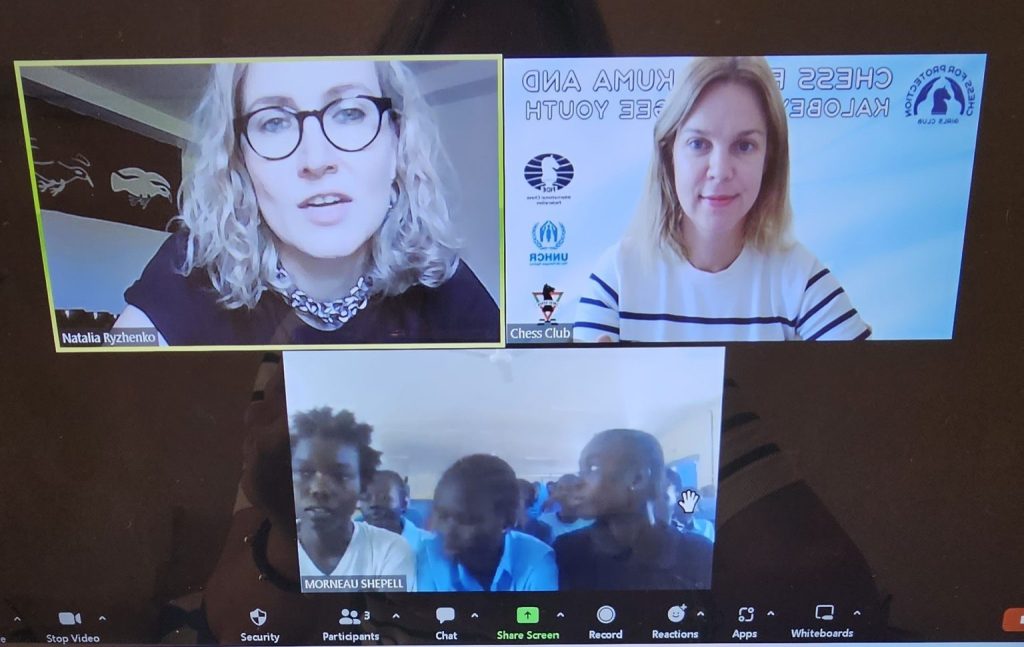
Workshops with inspiring personalities
The most recent special guest was author and chess enthusiast Kyla Zhao. Her book, May the Best Player Win, is, in her own words, “a story about not letting other people’s opinions nor your own doubts hold you back.”
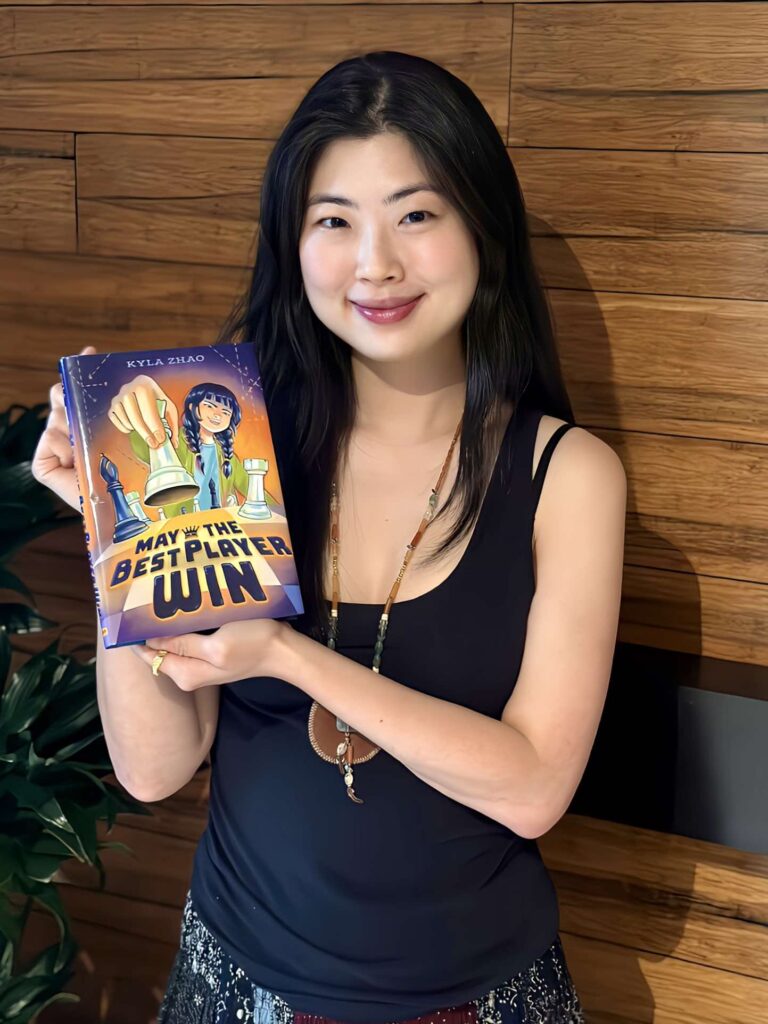
Kyla gave a thought-provoking presentation about her journey, emphasizing the importance of self-belief and hard work. She echoed the words of Judit Polgar, the greatest female chess player of all time, to highlight that gender is never a barrier to success. We are really grateful to Kyla Zhao for her time and for leading by example.
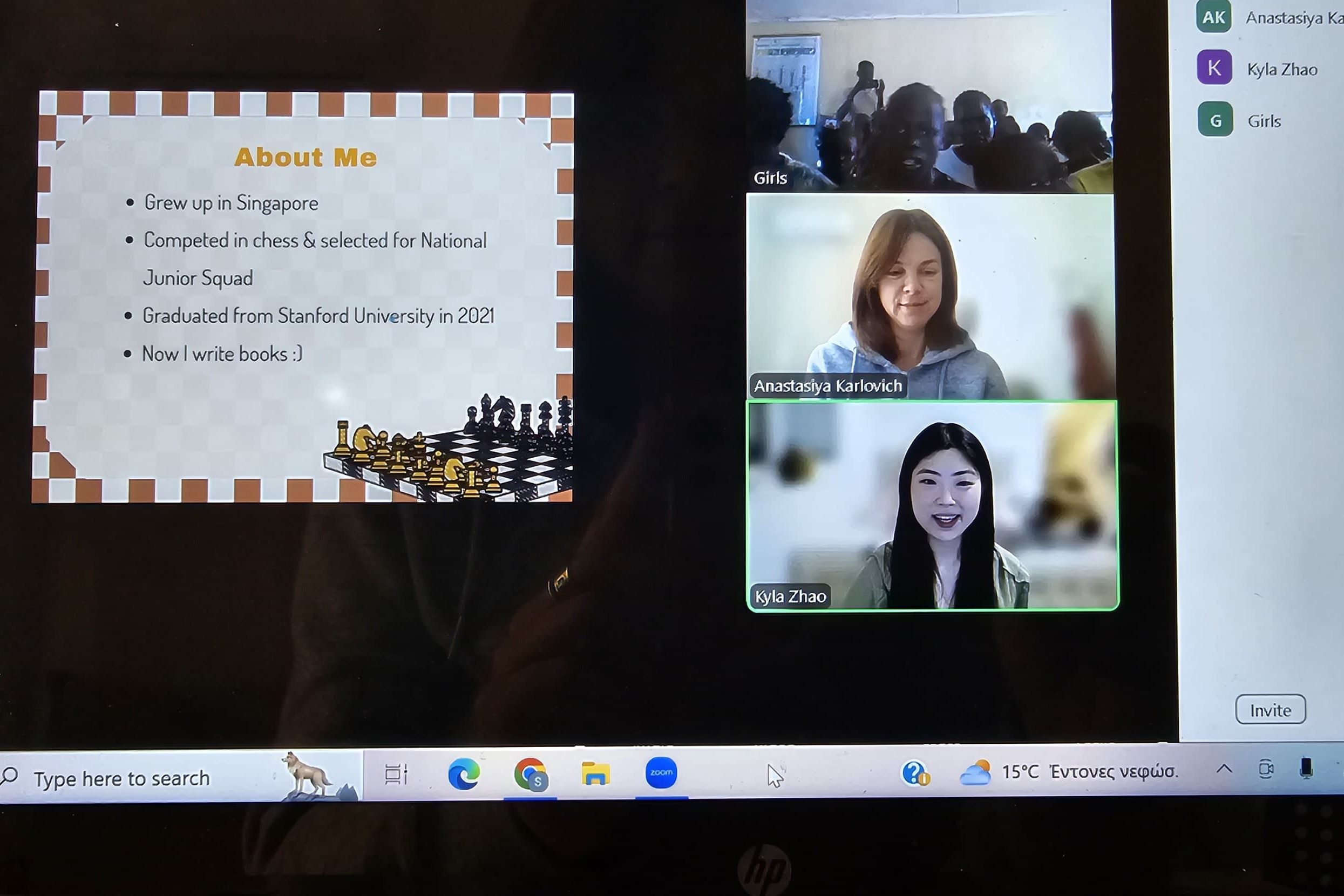
CHESS LESSONS
During the months of chess training, the girls learn the basic rules and continue to practice even after the online course ends. Refugee students also participate in competitions, including school tournaments in Kakuma.
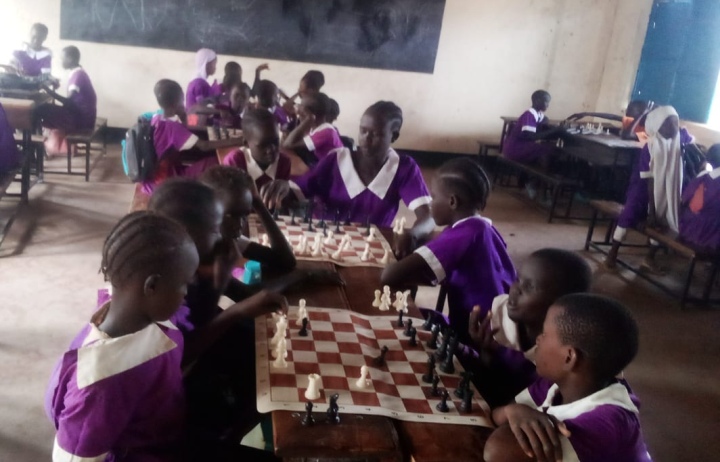
To make lessons engaging and impactful, modern technology is integrated into the training. Girls play chess with their peers and tutors, solve puzzles, compete against chess robots, watch educational materials from “ChessKid,” and have discussions about the chess world and the lives of chess players. Physical workouts are also part of the program to keep the lessons dynamic and fun.
The curriculum, designed by Anastasiya Karlovich and Martina Skogvall, was specifically tailored for teaching chess in refugee camps.
VISIT TO KAKUMA CAMP AND REFUGEE TEAMS
To support and develop the project further, FIDE representatives, including FIDE Managing Director Dana Reizniece-Ozola and Project Leader and WOM Chairperson Anastasia Sorokina, visited Kakuma Camp to meet with the girls and other refugees.
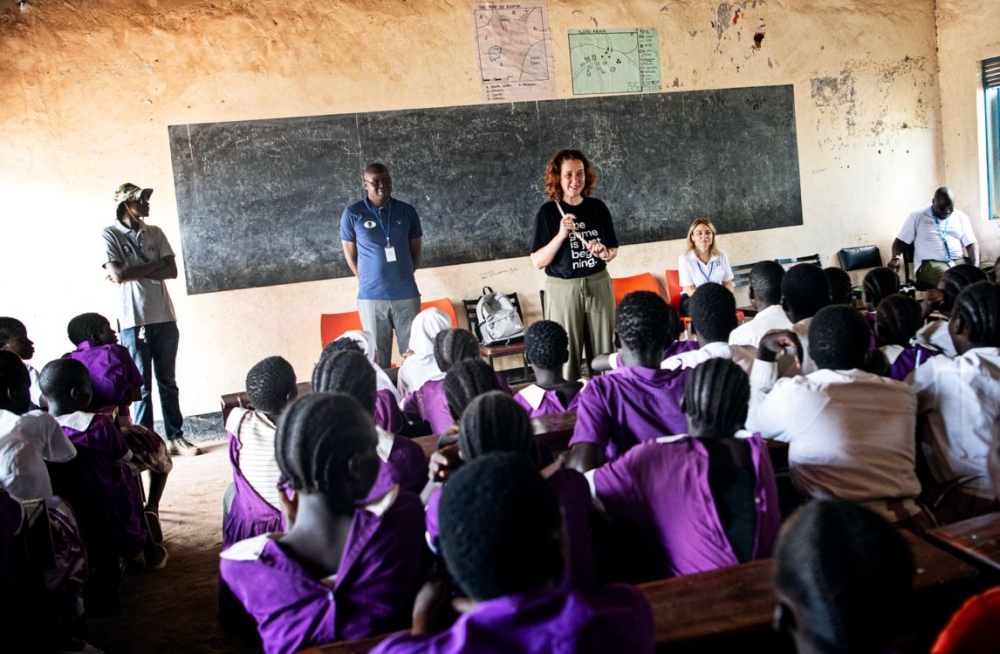
One of the important initiatives of FIDE and UNHCR is the inclusion of refugee teams in the Chess Olympiad. The teams for both open and women section have been carefully selected and had months of training and preparation to participate in the biggest chess event in the world. Two girls from our Girls Chess Club have also managed to win spots in the women team, proving how powerful the project is.
To prepare for this historic participation, the teams had training sessions with experienced Latvian coach FM Sergejs Klimakovs, first on-line and then in Kakuma, in August.
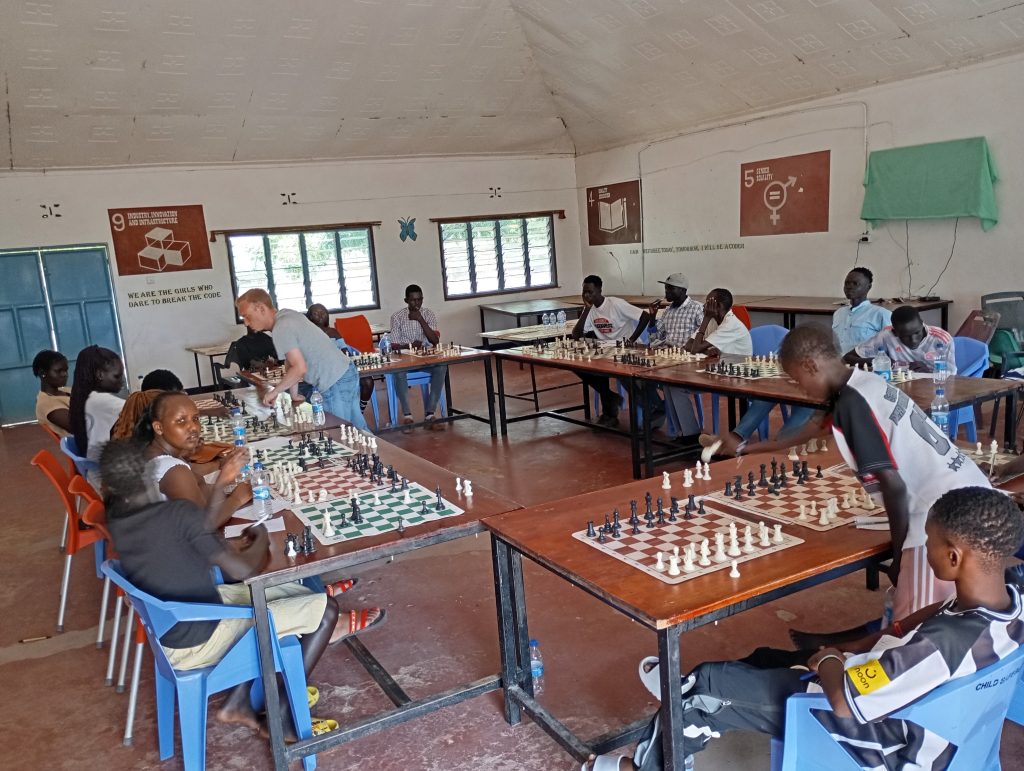
Although technical challenges prevented participation this year, significant progress has been made, and we hope to see refugee teams competing in the next Olympiad. We cannot wait to see what they will achieve.
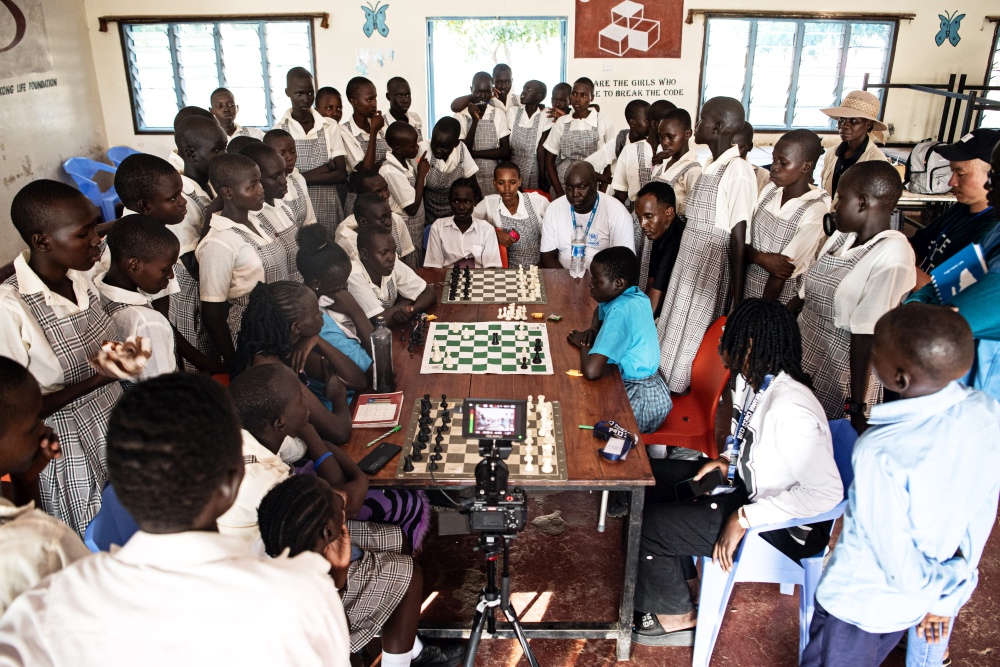
GIRLS CLUB “CHESS FOR PROTECTION” WILL CONTINUE TO UPLIFT GIRLS IN KAKUMA
The project is set to continue in 2025. Chess lessons and workshops will remain a focus, and girls will also have the opportunity to participate in the Queens’ Festival, competing in the Princess section – our global online festival for female chess players.
Next year could be historic for the project as we aim to reach over 1,000 students since the initiative began.

